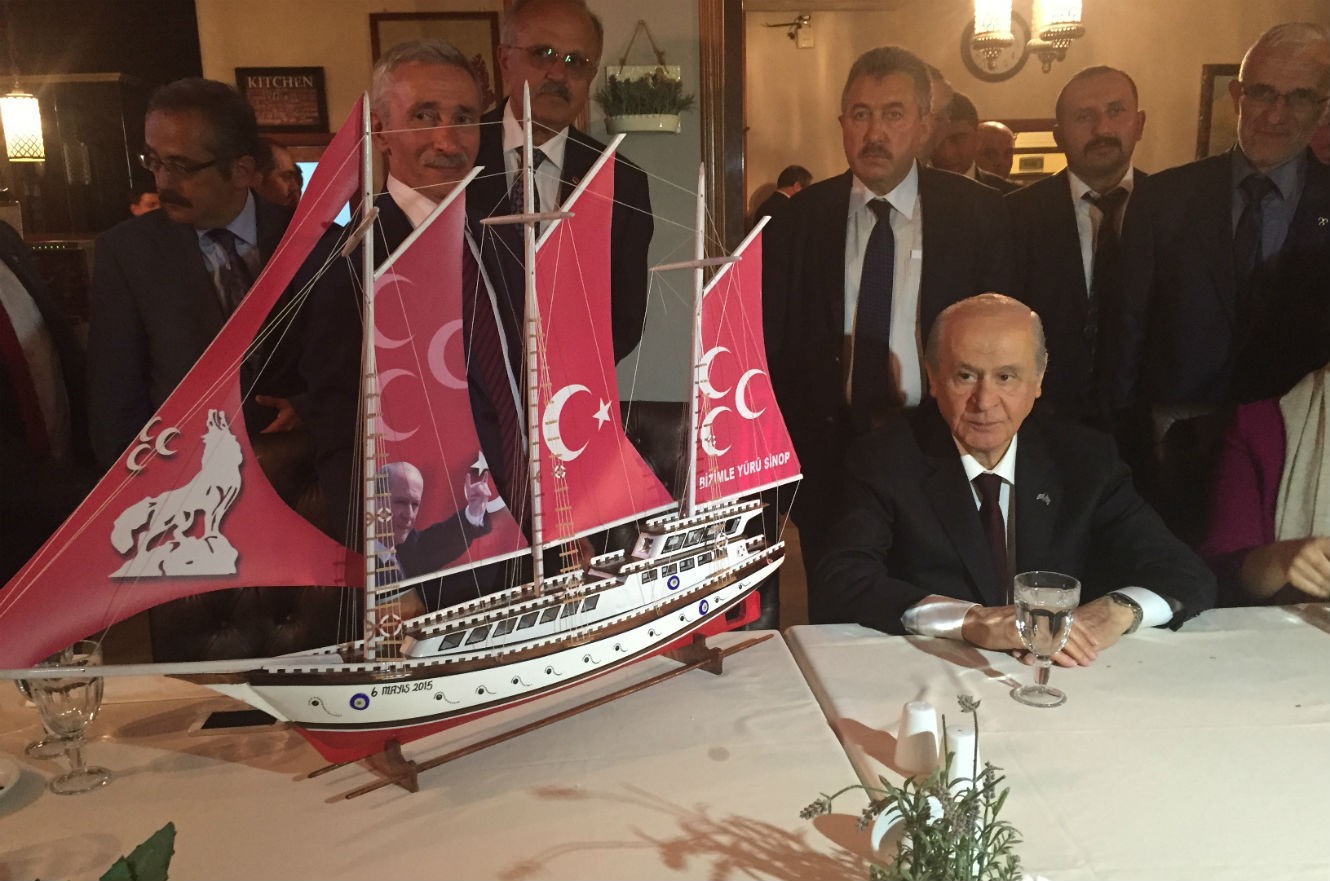On June 24, Turkey went through historic snap elections for both the presidency and parliament. The twin elections were the first of their kind, following the constitutional amendments of April 2017 that transformed Turkey’s more than 90-year-old political system. At first glance, Turkey’s controversial president, Recep Tayyip Erdogan, and his Justice and Development Party (AKP) appear to have won, although in a process that was arguably neither fair nor free. Erdogan won 52.59 percent of the presidential votes. The AKP and its coalition partner, the ultranationalist Nationalist Action Party (MHP), won 53.7 percent of the votes and 344 seats in parliament (295 for the AKP, 49 for the MHP) out of 600. On the ground, not much has changed: After sixteen years and counting, Erdogan is still in power and is still winning.
However, the real winner, and the biggest surprise, of the June elections was the MHP’s leader Devlet Bahceli, who made the call for snap elections in the first place. The common assumption among Turkey watchers was that the MHP could not get more than 7 percent of the votes, as opposed to 11.9 percent from last elections in 2015. They thought this for the simple reason that a new party splintered from the MHP — the Good Party (IYI), led by Meral Aksener — and that defection looked like it would severely diminish the MHP’s base.
The election results proved all Turkey commentators, including yours truly, wrong. The MHP stabilized its votes at 11.7 percent, despite the fact that the IYI won 10 percent, 7 percent of whom were previously MHP voters. The MHP appears to have made up the difference by drawing in some voters who formerly supported its coalition partner, the AKP. The MHP was able to accomplish this in elections that are considered neither free nor fair: Erdogan’s control of state institutions and media heavily tilted the election results toward the AKP. It is true that the MHP, as an AKP coalition partner, was not subject to the same sort of repression and delegitimization often experienced by the other parties, but it is just as important to note that the MHP also did not hold a single rally, and Bahceli received minimal air time in the media. Regardless, Bahceli outperformed all expectations.
More strikingly, both the MHP and the IYI performed well: as a start-up, the IYI received 10 percent of the votes and 43 parliamentary seats. The IYI accomplished this despite the fact that the AKP denied the new party any real media presence and even went to lengths to portray it as a “FETO project,” referring to the movement led by Fethullah Gulen, public enemy number one in Turkey. Overall, the elections literally doubled the political might of the broader ultranationalist movement. Bahceli emerged as a kingmaker. Without him, Erdogan would likely have not emerged triumphant in the first round of the presidential race (if he had not won a majority in the first round, there would have been a second).
This year has been the best the ultranationalist movement has seen in decades. What are we to make of this? And what are the implications of this surprise for Turkish politics?
Three interrelated factors can explain the MHP’s success. The first is a deep undercurrent in Turkish politics: A new brand of ultranationalism has been on the rise for a long time, and it has begun to have tangible impacts on the ballot box. Second, by turning to ultranationalist discourses — which he had slammed in the past — for short-term benefits in 2015, Erdogan brought this on himself. Ultranationalism proved to be a tiger he cannot control all by himself, partially because Bahceli has the tiger’s ear.
The third dynamic can be referred to as the “Bahceli factor.” Bahceli has long been ignored and even ridiculed by the opposition after his decision to first support and then join Erdogan from 2015 onward. He has usually been portrayed as an irrelevant and impotent “stepne” (spare tire) who allied with the president just to secure his leadership of the MHP. The recent elections suggest an alternative interpretation. Perhaps Bahceli is far from irrelevant, and has secured what he might have long envisioned: a Turkey where ultranationalist vision dominates politics, even if his own party may not be governing it.
Read more HERE
Ask me anything
Explore related questions





